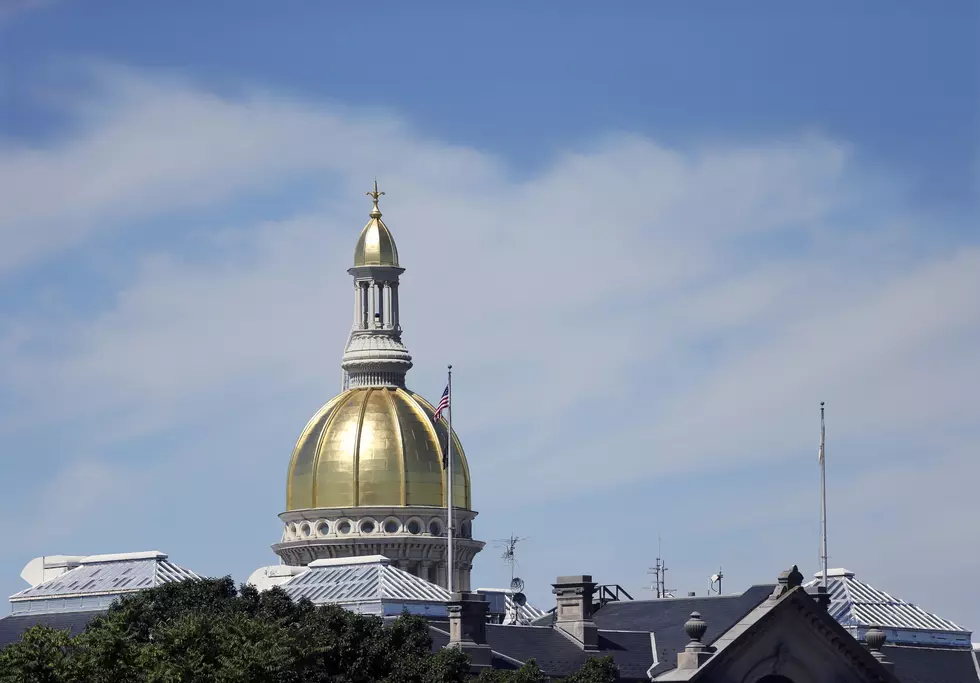
Turns out borrowing $4.3B ‘not essential’ to balance NJ budget
TRENTON – New Jersey’s budget is balanced in part through nearly $4.3 billion from emergency borrowing authorized in response to the coronavirus pandemic, but a nonpartisan budget analyst says it’s now clear that wasn’t necessary.
At a Senate budget committee hearing Tuesday, Thomas Koenig, the Office of Legislative Services’ budget and finance officer, said the borrowing was defensible at the time the budget was adopted in September.
“But from today’s vantage point, the borrowing was not essential to balancing the FY21 budget,” Koenig said.

Koenig said that without the borrowing, the state’s surplus would have fallen by only $165 million since Oct. 1 and remain slightly above $2 billion. Revenue forecasts have been upgraded by $3.4 billion, and the budget counts on $1.1 billion in lapses, helping build a surplus of $6.4 billion – over 15% of spending.
Republicans said they warned last September that the borrowing wouldn’t be necessary but that the administration moved ahead anyway. Then on top of that, it borrowed the money in a way that it could not be repaid early.
“It would have been possible, maybe wise … to wait until we actually needed the money. And had we done that, we would have found we never needed the money mathematically,” said Sen. Declan O’Scanlon, R-Monmouth.
“Gov. Murphy promised that the debt would be retired early if revenue exceeded expectations or federal money became available to help the state,” said Sen. Mike Testa, R-Cumberland. “Both of those things happened, yet here we are as New Jerseyans and the 9 million New Jersey taxpayers are stuck with 12 years of debt payments.”
The money was borrowed in late November. Office of Legislative Services officials said it began to emerge in late November that tax collections were beating expectations and was quite clear by late December, when estimated income and corporate tax payments began arriving.
Martin Poethke, director of the state Office of Revenue and Economic Analysis, said the administration realized it in the last two weeks of December, when a $600 million windfall of one-shot revenue from a new Pass-Through Business Alternative Income Tax began to materialize. That will be repaid as tax credits are claimed, but not until next year.
“By the beginning of January, we knew we would have to update those revenues,” Poethke said. “But that was not apparent in September. It just wasn’t.”
In addition to the size of the borrowing, Treasury Department officials also defended its structure by saying the costs would have been higher if they were ‘callable’ so they could be repaid early.
“The decision was based on market conditions at the time,” said state Treasurer Elizabeth Maher Muoio. “Making those bonds not callable was the most fiscally prudent decision at the time.”
“In the end, on the day of pricing and leading up to that day, it became quite clear that you would have paid a much higher interest rate had we made the bond callable,” said Assistant Treasurer Dini Ajmani.
Michael Kanef, director of the Office of Public Finance, said the newly borrowed funds have an interest rate under 2% but that some of the state’s other $40 billion in debt has interest rates of 4% to 5%. The state would save more than $150 million if it put $4.3 billion into escrow to defease some of that debt, removing it from the balance sheet, rather than pay the higher interest rate for callable debt, he said.
“So, if you personally had a choice between paying off your credit card at 19% or your mortgage at 4.5%, you personally would choose to repay your credit card because it’s a much higher interest rate item and it’s much more economical and in fact will save you money,” Kanef said.
Senators in both parties endorsed the defeasement concept, which Muoio said would be explored unless it’s prohibited by the U.S. Treasury Department under the new COVID recovery law.
“We don’t want to hold our children and grandchildren to this debt when there might be an ability to actually save some money,” said Sen. Dawn Addiego, D-Burlington.

Sen. Paul Sarlo, D-Bergen, said it’s incumbent on state officials to pay down debt and make sure investments of federal aid are strategic and extend over two or three years.
“Clearly in hindsight, if the decision was before the Legislature today and the administration, the decision may have been made not to borrow the emergency funds like we did,” Sarlo said.
Strange NJ Laws You've Never Heard Of
More From Beach Radio










